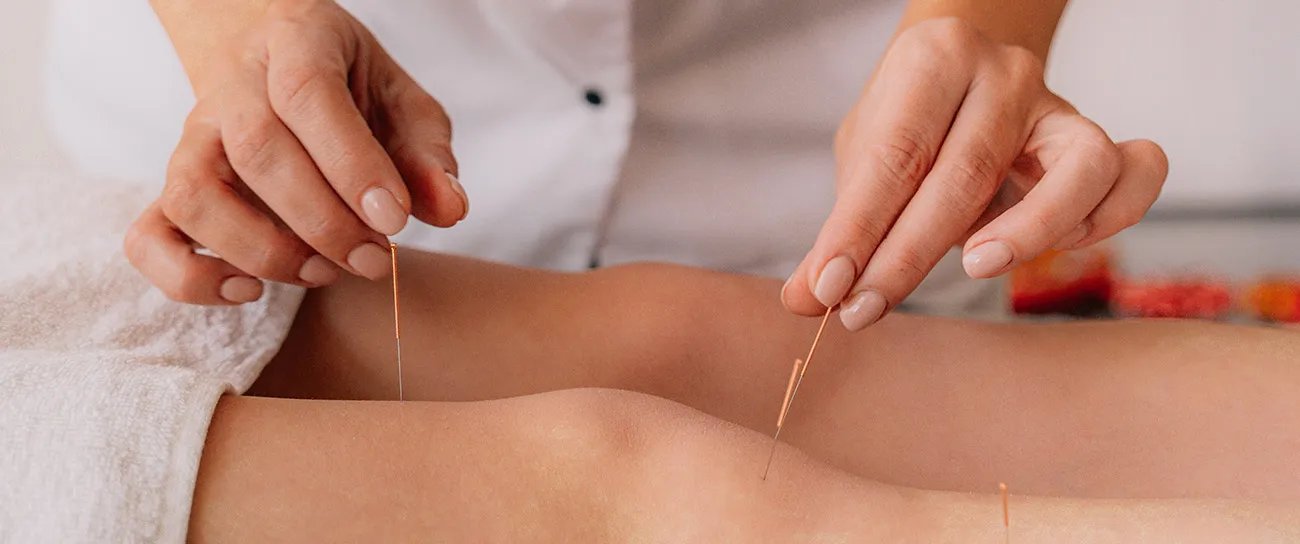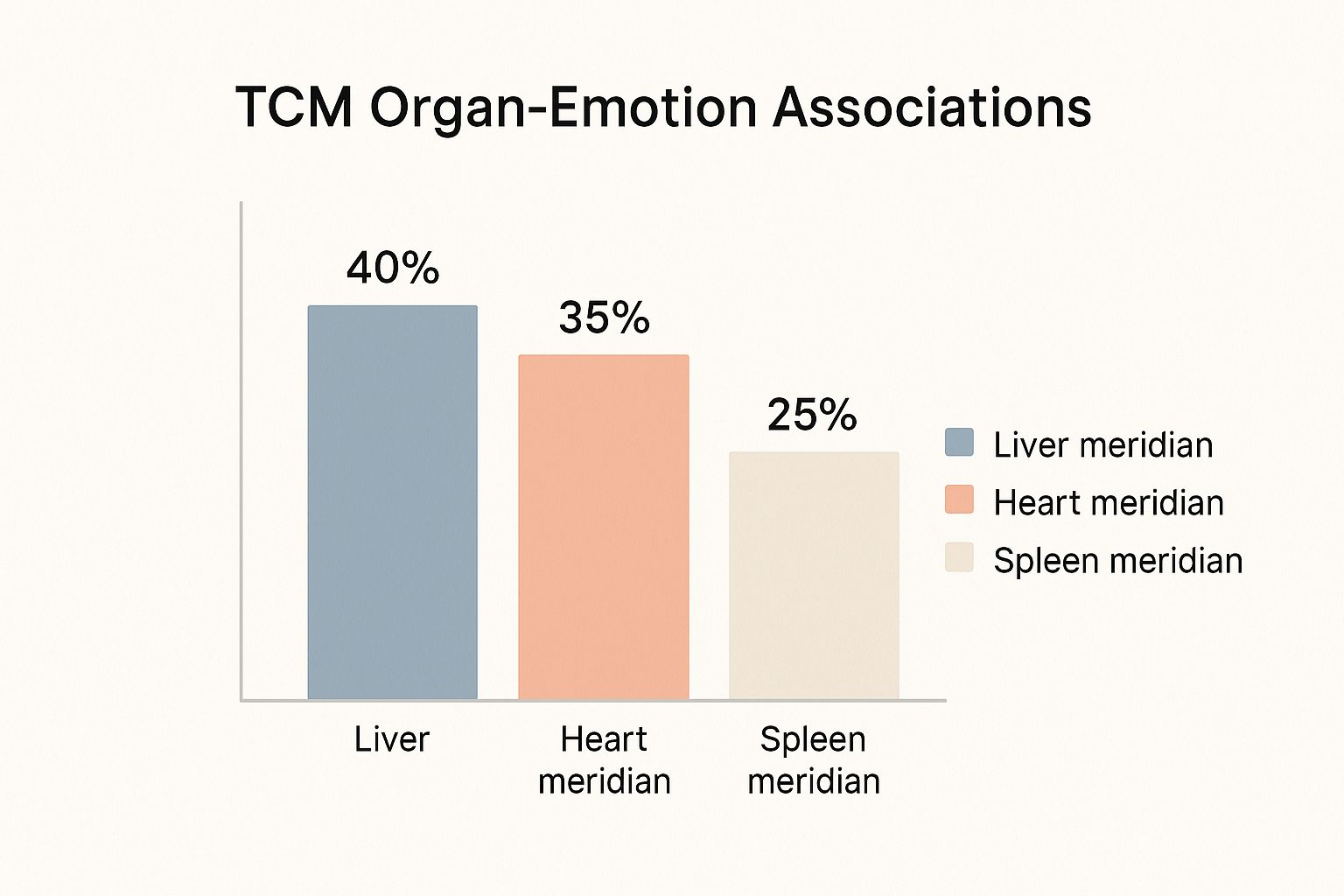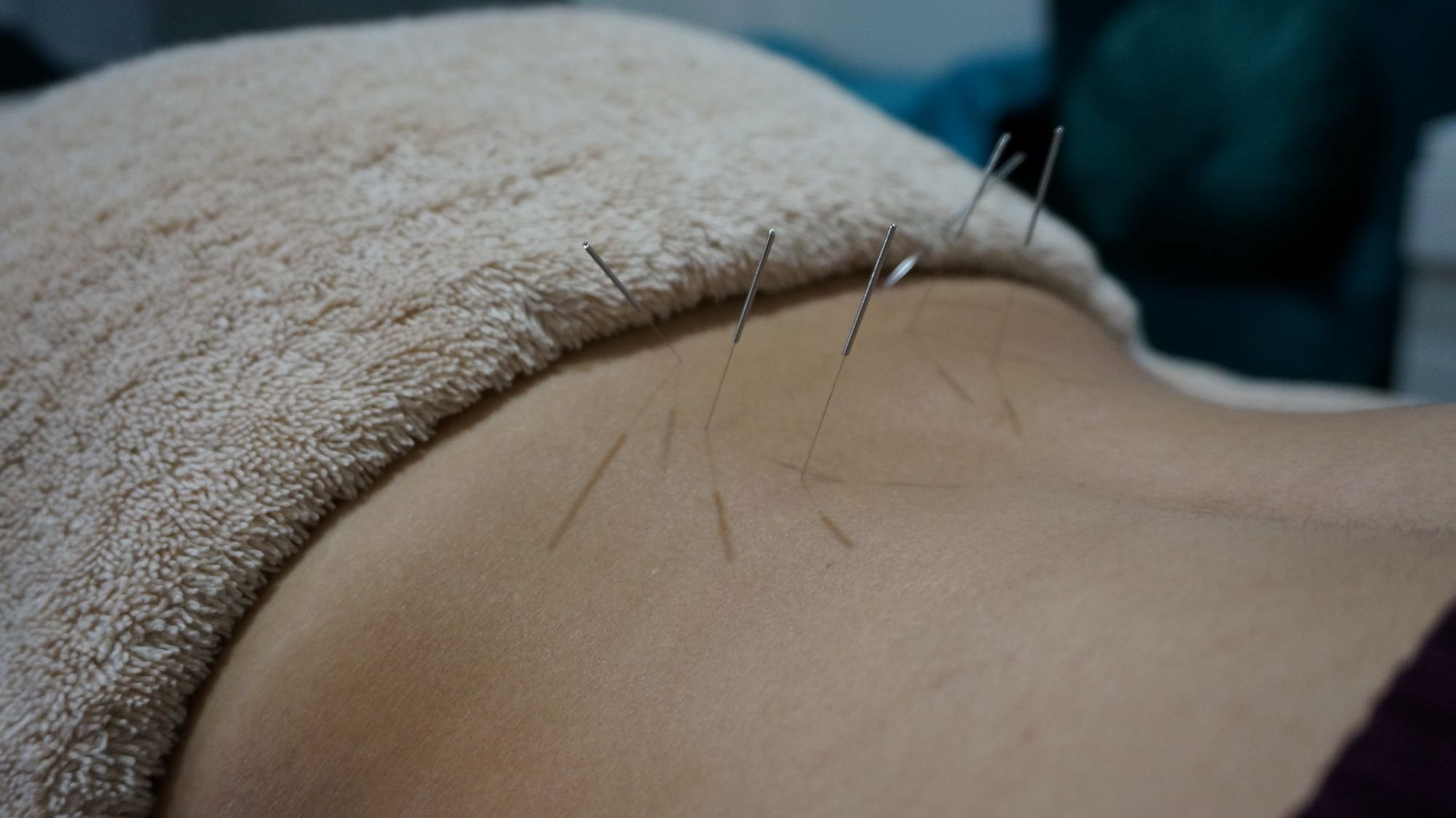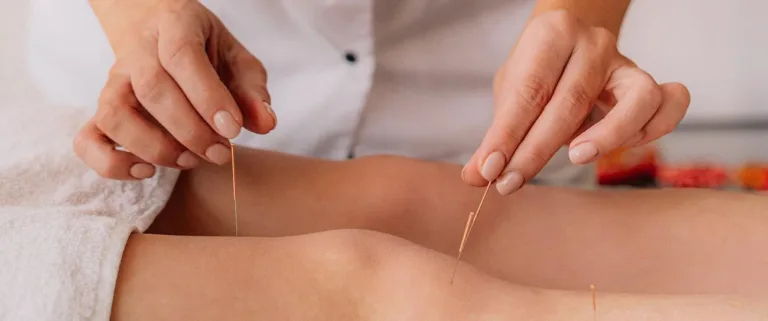Acupuncture is a highly regarded holistic healing technique that many individuals turn to in order to manage the overwhelming sensations associated with stress and anxiety. This time-honoured method involves the meticulous insertion of ultra-fine, sterile needles into designated points on the body. The primary goal is to activate the body’s natural healing mechanisms, promoting a profound sense of calm and relaxation that countless individuals find beneficial on their journey towards wellness.
Explore the Life-Changing Advantages of Acupuncture for Stress and Anxiety Management

Stress and anxiety are common challenges that significantly impact a large portion of the Australian population. When these burdensome emotions persist and start to disrupt daily life, it is entirely reasonable to seek effective strategies to reclaim control over your mental health and overall wellbeing. For many Australians, incorporating acupuncture into their holistic health regimen has become an indispensable aspect of their pursuit for comprehensive wellness.
Rooted in the principles of Traditional Chinese Medicine (TCM), acupuncture aims to facilitate the smooth flow of energy, known as Qi, throughout the body. Recent scientific studies suggest that stimulating specific acupuncture points can positively affect the nervous system, aiding in the regulation of the body’s natural stress responses, often referred to as the ‘fight or flight’ response.
Integrate Acupuncture Into Your Comprehensive Holistic Wellness Strategy
Recognising acupuncture as a crucial component within a broader wellness framework is essential. A qualified practitioner often advises it as an integral part of a holistic approach to your overall health and wellbeing.
This well-rounded strategy typically involves collaborating with your general practitioner (GP) or a mental health professional, alongside implementing beneficial lifestyle modifications. Key changes might include:
-
Participating in regular physical activity to boost your mood and energy levels.
-
Prioritising restorative sleep and incorporating mindfulness or relaxation techniques into your daily routine.
-
Following a balanced diet abundant in essential nutrients to bolster mental health.
Acupuncture is frequently incorporated into diverse health strategies. The primary objective is not merely to alleviate symptoms but also to enhance your body’s innate systems and strengthen resilience against stress.
To clarify these vital concepts, the table below outlines the key elements of acupuncture’s role in health.
Fundamental Principles for Recognising the Health Benefits of Acupuncture
|
Concept |
Brief Explanation |
|---|---|
|
Traditional Chinese Medicine (TCM) |
A comprehensive health system that views the body as an interconnected whole, where physical and emotional wellbeing are intricately linked. |
|
Qi (pronounced ‘chee’) |
The vital energy or life force that circulates through the body along meridians, essential for maintaining optimal health. |
|
Acupuncture Points |
Specific locations on the body where Qi can be accessed and manipulated to enhance health and functionality. |
|
Nervous System Regulation |
Modern research highlights how acupuncture may assist in calming the body’s stress response. |
Understanding these foundational concepts simplifies the comprehension of how a personalised treatment plan unfolds in practice.
What to Anticipate During an Acupuncture Treatment Session?
Your first acupuncture appointment commences with an in-depth conversation. A qualified practitioner will take the time to understand your specific health concerns and treatment objectives before initiating any procedures.
Once you feel at ease, fine needles will be gently introduced at carefully selected points on your body. Following this, you will have the opportunity to unwind in a serene environment, allowing the treatment’s effects to fully manifest.
In addition to acupuncture itself, your practitioner may integrate complementary therapies. For example, insights into Chinese herbal medicine can enhance your understanding of health nurturing from this traditional perspective. This integrated approach guarantees that your care is personalised to your unique needs, supporting you on your journey to improved wellbeing.
Understanding the Widespread Impact of Stress Across Australia

It is widely recognised that stress and anxiety are integral aspects of daily life for many Australians. The delicate balance of work, family, and personal responsibilities can accumulate, prompting individuals to seek effective strategies for managing their overall wellbeing. Acknowledging the prevalence of these feelings highlights why supportive therapies like acupuncture are gaining traction.
The statistics paint a concerning picture. According to a report from the Australian Bureau of Statistics (ABS) in 2017–18, 25% of Australians reported experiencing high or very high levels of stress. Notably, women reported higher levels (28.5%) compared to men (21.6%), emphasising the widespread need for effective support.
Exploring the Connection Between Mental Stress and Physical Symptoms
The sensation of being ‘stressed out’ rarely exists solely within the mental realm. Chronic stress often manifests physically, prompting many individuals to seek assistance.
The Australian Psychological Society (APS) indicates that 72% of Australians experiencing elevated stress levels also present physical symptoms. This statistic serves as a reminder of the complex relationship between our mental and physical health. For additional insights into the impacts of stress, visit healthinflow.com.au.
Common physical manifestations associated with ongoing stress encompass:
-
Persistent fatigue or an overwhelming sense of being drained of energy.
-
Frequent headaches or migraines that disrupt daily activities.
-
Tightness in muscles, particularly around the neck and shoulders, leading to discomfort.
When these physical symptoms become a regular part of life, it naturally compels individuals to seek effective solutions.
Recognising the connection between emotional states and physical sensations is a crucial step in addressing holistic health. This understanding elucidates why a comprehensive approach to wellness, incorporating practices like acupuncture for stress and anxiety, can yield beneficial outcomes.
The growing demand for effective stress management has spurred interest in various supportive therapies. More individuals are exploring practices that complement their existing healthcare routines and address both the psychological and physical dimensions of stress.
Insights from Traditional Chinese Medicine on Achieving Emotional Equilibrium
Viewing emotional wellbeing through the lens of Traditional Chinese Medicine (TCM) provides a unique perspective compared to conventional Western approaches. Rather than solely concentrating on brain chemistry, TCM adopts a holistic viewpoint, acknowledging the body as an interconnected system where emotions and physical health are two sides of the same coin.
Central to this philosophy is the concept of Qi (pronounced ‘chee’), which signifies the body’s vital energy or life force. This energy is intended to flow seamlessly through designated pathways known as meridians. When your Qi flows freely, you typically experience a sense of balance and overall wellness.
However, factors such as prolonged stress, excessive rumination, or sudden traumatic events can disrupt this flow, leading to stagnation. TCM often associates this disruption with feelings related to stress, irritability, or worry.
The Influence of Organs on Your Emotional Wellbeing
Within the TCM framework, specific organ systems are recognised as pivotal for particular emotions. This perspective extends beyond the physical organs outlined in anatomy textbooks; it encompasses broader functional networks that significantly affect both physical and emotional health.
When addressing issues related to stress and anxiety, two organ systems typically receive special focus:
-
The Liver System: This system is crucial for ensuring the smooth flow of Qi throughout the body. When Liver Qi becomes stagnant—often due to frustration or unresolved stress—it can manifest as irritability and tension headaches.
-
The Heart System: In TCM, the Heart is regarded as the residence of the mind and spirit, referred to as the ‘Shen’. An imbalance within this system can trigger feelings of anxiety, restlessness, and difficulty sleeping, resulting in poor sleep quality.
From this traditional perspective, addressing emotional imbalance is not about suppressing feelings; it is about identifying where the Qi is obstructed and applying acupuncture to restore its free flow.
Understanding these core principles clarifies why practitioners select specific acupuncture points. They utilise distinct diagnostic methods to discern these patterns within your body. For a deeper understanding of how this diagnostic process functions, refer to our guide on TCM diagnostic methods.
What Does Current Research Indicate About Acupuncture and Anxiety Management?
While Traditional Chinese Medicine provides a rich, time-honoured framework for emotional health, contemporary science is beginning to catch up. Researchers are investigating how acupuncture may influence the body’s stress responses, offering an additional perspective on its efficacy.
When examining scientific literature, it becomes clear that the language used is often cautious and measured. Research typically focuses on elucidating how acupuncture functions rather than making absolute claims. The consensus suggests that acupuncture may serve as a valuable component of a comprehensive plan for managing anxiety symptoms, particularly in studies comparing it to placebo or control groups.
Growing Evidence Supporting Acupuncture’s Effectiveness
Recent high-quality reviews are beginning to unveil promising trends. The Acupuncture Evidence Project, a thorough review of scientific literature, identified moderate evidence supporting acupuncture’s effectiveness in treating anxiety, categorising it as having an ‘Evidence of Potential Positive Effect’.
Out of 1,135 clinical studies reviewed on this subject, 13 were recognised as high-quality studies, reporting positive outcomes for acupuncture in comparison to control groups. An Australian-focused review indicated that 11 of these 13 studies demonstrated statistically significant reductions in anxiety symptoms. For further insights into the data, our Evidence Based Acupuncture website offers valuable information.
The infographic below illustrates which organ-meridian systems are most frequently targeted in clinical practice when addressing stress and emotional imbalances.

As illustrated, the focus is heavily placed on the meridians traditionally associated with processing emotions, managing stress, and achieving mental clarity.
It is crucial to remember that scientific understanding is continually evolving. The research we currently possess is promising, yet it represents just a fraction of an ongoing, broader discourse. For practitioners, this evidence guides us in making informed, balanced decisions when developing supportive care plans for our clients.
What to Expect During Your Acupuncture Appointment

Entering your first acupuncture appointment may evoke feelings of uncertainty; however, the process is designed to be calming, professional, and centred around you. We adhere to a clear, step-by-step protocol to ensure you feel relaxed and supported from the moment you arrive.
Your initial session commences with a comprehensive discussion with our registered practitioner. This is where we delve into your health history, the specifics of your stress and anxiety symptoms, and your desired outcomes. This thorough conversation is essential for crafting a personalised treatment plan that aligns with your unique needs.
After our discussion, you will be invited to recline comfortably on a treatment table. The practitioner will then gently insert ultra-fine, sterile, single-use needles into selected acupuncture points on your body.
Comprehending the Treatment Process
Once the needles are accurately positioned, your primary role is to relax. Most clients lie quietly in a serene setting for approximately 20 to 30 minutes.
What should you anticipate feeling? Typically, the sensation is mild. Many individuals report experiencing a dull ache or a slight tingling at the needle insertion point, which often fades quickly, leading to an overall feeling of relaxation.
The number of needles and their specific placement are determined by the discussions we had during your initial consultation. When applying acupuncture for stress and anxiety, we select points renowned for their ability to calm the mind and regulate the body’s responses to external pressures.
At JG Alternative Healthcare, our practitioner is registered with the AHPRA, ensuring you receive both professional and safe care.
If you are eager to discover how this process can benefit you, beginning your journey is simple. You can schedule your first consultation by checking our Melbourne acupuncture clinic appointments online.
Addressing Frequently Asked Questions About Acupuncture for Stress Management
It is entirely normal to have queries when considering a new approach to your health. Let’s explore some of the most commonly asked questions regarding the use of acupuncture to manage stress and anxiety.
Does Acupuncture Induce Pain?
For the majority of individuals, the answer is no. Acupuncture needles are exceptionally fine—approximately the same thickness as a human hair. They differ significantly from the needles used for injections or blood tests.
You may feel a brief prick or a gentle ache upon needle insertion, but this sensation typically subsides within seconds. After the needles are properly positioned, many clients describe sensations of profound relaxation and tranquillity.
How Many Sessions Are Typically Necessary?
This question is highly individual, as each person’s body and circumstances differ. The number of sessions you may require depends on various factors, including the duration of your symptoms and your overall health condition.
During our initial consultation, we will discuss your situation in detail. From this discussion, I will recommend a treatment plan tailored to your specific needs, and we will consistently monitor your progress.
Can Acupuncture Be Combined with Other Therapies?
Absolutely. Acupuncture can effectively complement other forms of care. Many individuals find that it enhances the treatments they are currently receiving from their GP, psychologist, or other healthcare professionals.
The essential point is to maintain clear communication. Always inform your health team about all therapies you are engaging in. This ensures that your care remains safe, coordinated, and works synergistically for your benefit.
Is Acupuncture Considered Safe?
When performed by a registered and qualified practitioner, acupuncture is classified as low-risk. In Australia, acupuncturists must be registered with the Australian Health Practitioner Regulation Agency (AHPRA).
This registration ensures that your practitioner adheres to stringent national standards for safety, hygiene, and professional conduct. It also confirms that only sterile, single-use needles are utilised during treatments.
Why Is Acupuncture Gaining Popularity for Anxiety Management in Australia?
Anxiety has become the most widespread mental health condition in Australia, affecting approximately 14% of the population each year. With such a substantial number of individuals affected, there is a growing demand for supportive, evidence-based options. Some studies indicate that acupuncture may alleviate anxiety symptoms, often with fewer side effects compared to other standard treatments. For a deeper understanding of the research surrounding acupuncture and anxiety, click here.
The objective of acupuncture is not to replace conventional medical treatments but to serve as a supportive partner alongside them. It represents one piece of a larger puzzle in managing your overall wellbeing.
We hope these responses provide clarity on how acupuncture may fit into your health strategy.
Are you ready to explore how our registered practitioner can assist you? Connect with JG Alternative Healthcare today.
Melbourne Acupuncture Clinic – Book an Appointment at Moonee Ponds or South Morang at https://jghealthcare.com.au
The Article: Acupuncture for Stress and Anxiety: A Clear Guide first appeared on https://writebuff.com
The Article Acupuncture for Stress and Anxiety: Your Essential Guide Was Found On https://limitsofstrategy.com




